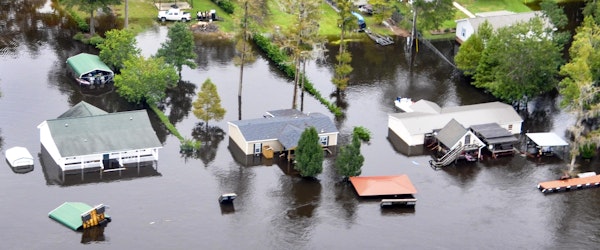
Employers Face Rising Scrutiny Over Worker Safety Amid Natural Disasters
Wednesday, October 23rd, 2024 Catastrophe Litigation Risk Management Workers' CompensationRecent natural disasters, like Hurricane Helene in Tennessee and a 2021 tornado in Kentucky, are intensifying legal scrutiny over workplace safety protocols. Companies are facing lawsuits from workers and families alleging negligence for not adequately protecting employees during severe weather events.
In Tennessee, Impact Plastics is under legal fire after a deadly flood caused by Hurricane Helene in Erwin on September 27 resulted in the deaths of several workers. The lawsuit, filed by a surviving family member, claims the company forced employees to remain at work despite hazardous conditions. Impact Plastics, however, denies any wrongdoing, with company President Gerald O’Connor stating that workers were given at least 45 minutes’ notice to evacuate before the flood hit. Six workers were confirmed dead, and several were still missing when the lawsuit was filed in October.
This situation mirrors an earlier case involving Mayfield Consumer Products LLC in Kentucky. In 2021, a powerful tornado struck the company’s candle factory, killing multiple workers. The plaintiffs argue that despite tornado warnings, the company failed to dismiss employees or provide shelter, resulting in the tragic deaths. Mayfield has denied liability, citing workers’ compensation immunity, though plaintiffs in Kentucky are pursuing exceptions based on alleged negligence. The lawsuit is still ongoing, with discovery underway.
These cases highlight a growing trend where natural disasters, once considered uncontrollable "acts of God," are now seen as foreseeable risks, especially given the increasing frequency of extreme weather events. Regulatory agencies like OSHA are paying closer attention to employer emergency action plans, and companies without proper protocols are finding themselves vulnerable to litigation. Legal experts point out that states differ in how they handle workers’ compensation claims related to natural disasters, with conditions such as whether warnings were issued and the scope of the event playing key roles. Employers are urged to adopt comprehensive safety measures, including detailed evacuation and shelter plans, to protect their workforce and mitigate legal exposure.
As climate change alters weather patterns, employers across the U.S. face heightened responsibilities and potential legal risks in ensuring worker safety during these unpredictable events.





